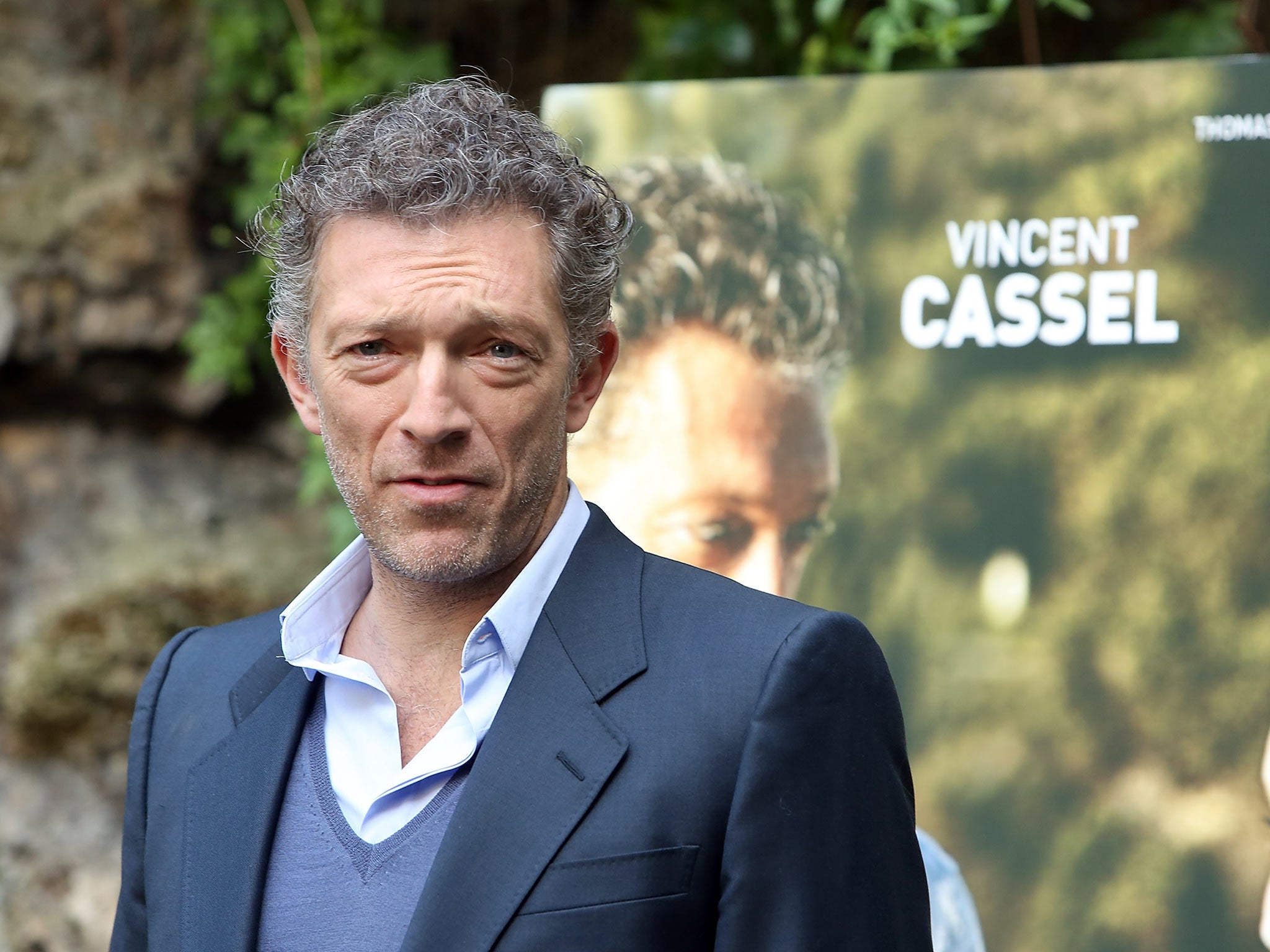Actor Vincent Cassel criticises Italian film voice-over artists for acting like ‘a mafia’
'In Italy it is difficult to see a film in the original language, because the voice actors here are a mafia'

Your support helps us to tell the story
From reproductive rights to climate change to Big Tech, The Independent is on the ground when the story is developing. Whether it's investigating the financials of Elon Musk's pro-Trump PAC or producing our latest documentary, 'The A Word', which shines a light on the American women fighting for reproductive rights, we know how important it is to parse out the facts from the messaging.
At such a critical moment in US history, we need reporters on the ground. Your donation allows us to keep sending journalists to speak to both sides of the story.
The Independent is trusted by Americans across the entire political spectrum. And unlike many other quality news outlets, we choose not to lock Americans out of our reporting and analysis with paywalls. We believe quality journalism should be available to everyone, paid for by those who can afford it.
Your support makes all the difference.If Clark Gable hadn’t uttered “Francamente me ne infischio,” rather than the better-known English equivalent, would millions in Italy have even seen Gone with the Wind? The country’s voice-over artists insist not.
Italy is a country of castes and special interests, from pharmacists and taxi drivers to politicians and lawyers, but perhaps none is more serene in its power than the group that puts the words in the mouths of the biggest Hollywood celebrities.
But last week French film star Vincent Cassel has dared to speak out against this formidable group, the film dubbing industry. “In Italy it is difficult to see a film in the original language, because the voice actors here are a mafia,” said Mr Cassel ahead of the release of his latest film A Moment of Madness, which opens in Italy on 24 March.
The power of the dubbers is legendary, and they have even become stars in their own right among mollycoddled Italian cinema-goers for whom the expression “Original Language” strikes fear into the heart.
“There’s film dubbing in France, too,” said Mr Cassel, “but the dubbers don’t have so much power that they run the show. There are creators and the dubbers. The dubbers stick to the voice-overs. When there’s a dubbers’ strike the cinemas [in France] don’t close.”
And in Italy, strike they do. In June 2014, millions of Italian relevision viewers were unpleasantly surprised to switch on their favourite American sitcoms and hear unfamiliar English being spoken by the actors, accompanied by Italian subtitles.
The sudden exposure to lingua originale came thanks to a strike organised by the country’s several – and powerful – dubbers’ unions.
Mr Cassel said some of the meaning in his new film, a comedy drama set in Corsica, was lost by having characters speak Italian, rather than French with Parisian and Corsican accents.
Roberto Pedicini, who has done voice-overs for Mr Cassel in the past, although not in this latest film, and who does the dubbing for Kevin Spacey and Javier Bardem, said Italians couldn’t be expected to learn every language, and that subtitles were often inaccurate.

Watch Apple TV+ free for 7 days
New subscribers only. £8.99/mo. after free trial. Plan auto-renews until cancelled

Watch Apple TV+ free for 7 days
New subscribers only. £8.99/mo. after free trial. Plan auto-renews until cancelled

He told the Adnkronos news agency: “It would be nice to see every film in its original language. The problem is that we’d have to learn really diverse languages, given that the most awarded films at festivals are Asian or from the Middle East. And subtitles are often misleading or compromised.”
Massimo Cestaro, the general secretary of the biggest Italian dubbers union, the Associazione Nazionale Attori Doppiatori, told The Independent on Sunday that he didn’t see what all the fuss was about.
“Every so often this argument comes around. But it’s not my members who decide whether the film is dubbed or in original language, it’s the producers. And it’s normal for books and novels to be translated into different languages and no one complains about that. So what’s the difference?”
He added: “We shouldn’t use the word ‘mafia’, because that describes something different and very serious.”
Italy’s long and uniquely strong tradition in film dubbing may have started with the first Italian films, when visually expressive actors handicapped by dull voices were dubbed by more mellifluous colleagues.
Mr Cestaro said the tradition was reinforced after the Second World War, when Italian cinema goers were subjected to “an invasion by American films”, which they were not ready – or willing – to digest in the English language.
As the dubbing industry grew, so did the skill and fame of its main stars, some of whom became associated in the minds of Italian cinema goers with one or more Hollywood stars.
Some celebrated Italian screen actors have also had important dubbing roles. One example is Giancarlo Giannini, who starred in many Hollywood films, including the James Bond pictures Casino Royale and Quantum of Solace, as well as doing Italian voice-overs for Al Pacino.
By now, the dubbing culture appears here to stay. Mr Pedicini summed up why: “The question is simply this. To make an Italian film appeal to the largest number of people it has to be dubbed. If it weren’t dubbed, the new film of Cassel would be seen by many fewer people.”
Join our commenting forum
Join thought-provoking conversations, follow other Independent readers and see their replies
Comments